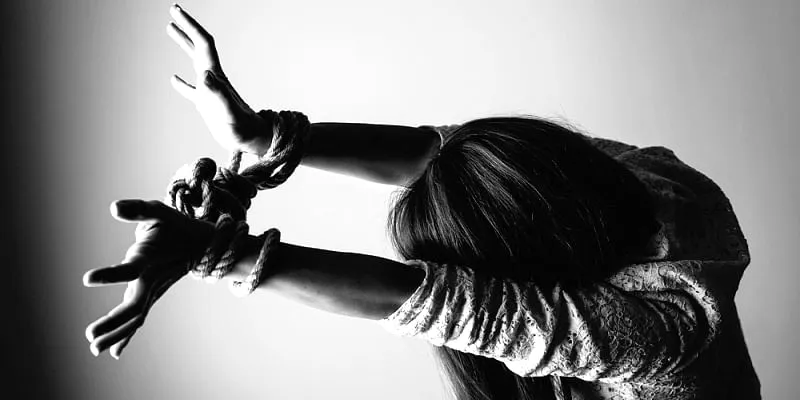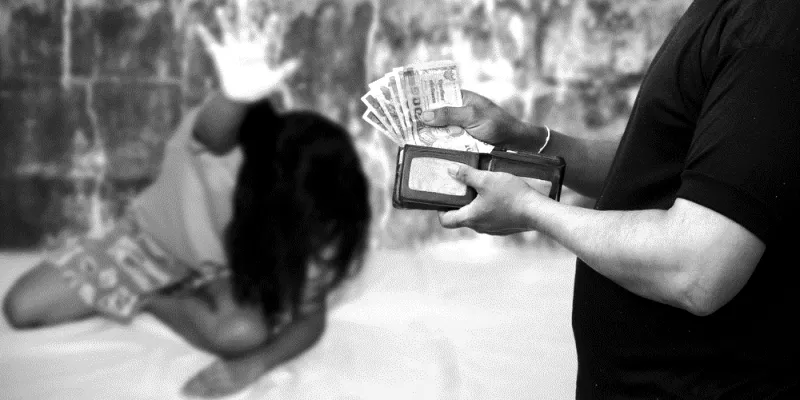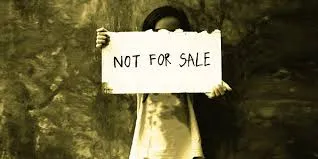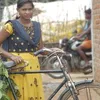[World Human Rights Day] Time to unite against human trafficking, which strips people of basic rights
On World Human Rights Day, SocialStory looks at human trafficking, one of the most heinous crimes that deprives humans of their basic freedom, and the impact of the pandemic on the same.
Every human is born free. Regardless of race, sex, gender, etc., it is our responsibility to treat everyone equal and with dignity. However, a large percentage of people – in India and globally – lack these basic rights. They are bound to the limits of four walls and live with little or no pay. A little freedom is all they want.
This year, the coronavirus pandemic also pushed many people to the brink. There were reports of increased discrimination, inequality, and poverty across the world.
To address these issues, World Human Rights Day was started in 1938. Observed every year on December 10, it came into effect when the United Nations General Assembly adopted the Universal Declaration of Human Rights. The declaration is a milestone document that proclaims the inalienable rights, which everyone is entitled to as a human being - regardless of race, colour, religion, sex, language, political or other opinion, national or social origin, property, birth or other status.
On World Human Rights Day 2020, we discuss one of the most heinous crimes that completely strips a person of their freedom – human trafficking.
Deprived of basic rights
Human trafficking is a gross violation of human rights. According to Trafficking in Persons Protocol, human trafficking is defined as the recruitment, transportation, transfer, or receipt of persons by threat or use of force, coercion, abduction, fraud, deception, and giving payments or benefits to a person in control of the victim for the purpose of exploitation. This includes exploiting the prostitution of others, sexual exploitation, forced labour, slavery or similar practices, and the removal of organs.

In simple terms, human trafficking deprives a person of their basic human rights, including the right to live a life of their choice for no fault of their own. While a number of factors influence the growth of human trafficking, poverty still remains one of the major factors.
In fact, those suffering from poverty are largely targeted by traffickers. It can also drive poor parents to sell their children, and this can be alarming considering that 38 percent (about 380 million) of the population in India is poor.
Identifying trafficked victims
About 25 million people worldwide are victims of labour and sex trafficking, according to the United Nations, with concerns growing that more will fall prey as support services are halted and efforts to secure justice are hindered.

Representational Image; Source – Shutterstock
However, identifying the victims of trafficking is not an easy feat. This is simply because they are exploited illegally in unregulated sectors and the crime is hidden in plain sight. Moreover, the victims are often threatened and do not reveal or report their victimisation.
In a conversation with International Justice Mission, SocialStory learnt that victims are given market days, especially in brick kilns and other illegal places of employment. However, they are closely monitored, so escape is out of question. Moreover, only one member of the family is allowed to go out, leaving their entire family behind, who are at risk if they abscond.
Pandemic impact
The pandemic created disruption amid the population, and people were adjusting to the ‘new normal’. Among them were the human trafficking perpetrators who were adjusting their business models to the new normal.
At the outset of the pandemic, a number of people were laid off from their jobs, especially migrant workers and daily wagers. This created a lot of opportunities for bonded labour and other means of illegal employment, as there was a need for survival.
Moreover, the need for employment added to the fear of contracting the virus has made people easy victims to trafficking, finding themselves in precarious circumstances and falling prey to it.
Child victimisation
Children are an easy target for trafficking. With slowing down of the economy and the shutdown of schools due to the pandemic, children have become the cheapest form of labour.
In fact, according to a study, at one point during the lockdown in India, over the course of 11 days, about 92,000 cases of child abuse were reported to the government helpline.

Another study by Child Rights and You (CRY) said 62 percent of child labourers in the age group of 5-14 years in India are employed in agriculture, forestry, and fishing, closely followed by industries and services. Children get entangled in worst forms of labour including forced labour, bonded labour, children being used, procured, or offered for prostitution, pornography, and trafficking of drugs.
Puja Marwaha, Founder and CEO, CRY, said during a webinar organised ahead of World Day Against Child Labour, “a change will come only when the citizens of India consciously believe that children below the age of 18 should not work, irrespective of their financial backgrounds.”
Human Rights Day 2020 – Stand up for your rights
Speaking about child victimisation and bonded labour, 19-year-old Manasi Bariha was recently in the news when she rescued over 6,000 bonded labourers in Tamil Nadu. Her quick thinking and bravery not just helped people find a new life, but also highlights this year’s theme for Human Rights Day – Stand Up for Your Rights, attributed to this year’s pandemic.
Like Mansi, many non-profit organisations are standing up for trafficking victims, including International Justice Mission, Prajwala Foundation, Jeevika, Guria, Rescue Foundation, Jeevika Free, and many others.
Moreover, the United Nations Organisation believes that Human Rights must be at the heart of the post COVID-19 world. This can ensure that people who’ve been severely impacted by the pandemic can find a way back and lead a dignified life.
Edited by Megha Reddy

![[World Human Rights Day] Time to unite against human trafficking, which strips people of basic rights](https://images.yourstory.com/cs/5/98c65090592f11ea9f62339ce853ca75/Imageswit-1607587547756.jpg?mode=crop&crop=faces&ar=16%3A9&format=auto&w=1920&q=75)
![[Survivor Series] I survived child trafficking and am now helping others stay safe](https://images.yourstory.com/cs/5/f5a7f3304b1211e9b6645b8ae897d03e/SS-image-1607525623682.png?fm=png&auto=format&h=100&w=100&crop=entropy&fit=crop)






